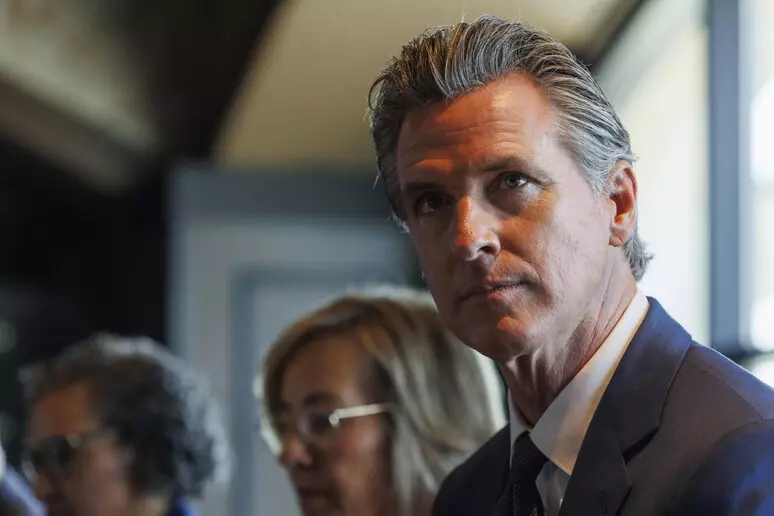“There’s nothing compassionate about letting people die on the streets”: Gavin Newsom, Governor of California, argues that what’s needed now are solutions, not tolerance.
In a direct and unequivocal message, the governor issued a call to action to the state’s mayors: no more delays, homeless encampments must be cleared. The homelessness crisis, he said, must be addressed “with urgency and humanity.”
In his remarks, the former San Francisco mayor presented a model ordinance designed for adoption by cities and counties. The proposal bans long-term encampments and the obstruction of sidewalks, but also requires local authorities to give prior notice and make every reasonable effort to offer shelter before proceeding with evictions.
At the core of the plan are $3.3 billion in new funding aimed at expanding housing options and treatment programs. This investment adds to the $27 billion already spent in recent years, in a state where, with nearly 190,000 estimated homeless individuals in 2023, the “Golden State” holds the national record.
The California governor has made the fight against homelessness a top priority since taking office in 2019. He now urges local leaders to act decisively, emphasizing that “the time for inaction is over there are no more excuses,” a statement that carries the weight of a warning.
Major metropolitan areas are trying in their own way to manage the crisis. In San Francisco, under the new mayor Daniel Lurie, the city has pledged to clear sidewalks of tents. In San José, Mayor Matt Mahan has proposed penalties including arrest for individuals who refuse shelter three times. In Los Angeles, Mayor Karen Bass has made dismantling encampments a priority, yet the reality still shows thousands living in makeshift shelters, with over 45,000 homeless people in the city.
Politically, Newsom’s announcement comes one year after a Supreme Court ruling made it easier for authorities to ban outdoor encampments. The decision was welcomed by several political leaders, but harshly criticized by activists and advocacy groups for the vulnerable. According to the National Alliance to End Homelessness, a U.S. nonprofit committed to fighting poverty and homelessness, overly punitive policies can worsen the situation: displaced individuals may lose critical documents, lose touch with support services, and be forced to start their path to stability all over again.
In 2024, California voters approved a measure requiring counties to allocate funds collected through the state’s millionaire tax to mental health care, addiction treatment, and housing for the most vulnerable. The initiative was strongly supported by Newsom, who has also backed legislation to make it easier to compel individuals with severe behavioral health issues to undergo treatment.
The crisis affecting the state reflects a broader problem facing the entire country. According to federal data, the United States has over 653,000 homeless people, that’s more than ever recorded since systematic tracking began. California alone is home to nearly a third of this population, and the situation continues to deteriorate.












